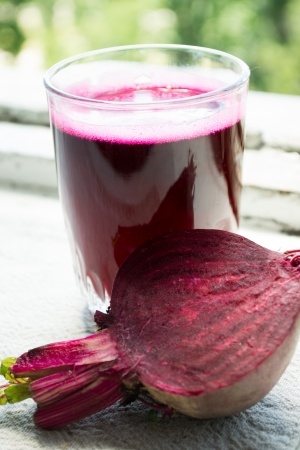Calendar
May 2016 S M T W T F S 1 2 3 4 5 6 7 8 9 10 11 12 13 14 15 16 17 18 19 20 21 22 23 24 25 26 27 28 29 30 31 Archives
- June 2018
- April 2018
- March 2018
- February 2018
- January 2018
- December 2017
- November 2017
- October 2017
- September 2017
- August 2017
- July 2017
- April 2017
- March 2017
- February 2017
- January 2017
- December 2016
- November 2016
- October 2016
- September 2016
- July 2016
- June 2016
- May 2016
- April 2016
- March 2016
- February 2016
- January 2016
- December 2015
- November 2015
- October 2015
- September 2015
- August 2015
- July 2015
- June 2015
- May 2015
- August 2013
- June 2013
- May 2013
- March 2013
- February 2013
- January 2013
- July 2012
- June 2012
- October 2011
- September 2011
- August 2011
- January 2011
Categories
Monthly Archives: May 2016
Beet Juice a Workout Necessity?
 Many athletes, gym rats, and sports enthusiasts alike believe that beet juice in the form of a full sized 12 oz cup, or even “shots” is the solution to dilated blood vessels, muscles, and nitrate to nitrous oxide conversion.
Many athletes, gym rats, and sports enthusiasts alike believe that beet juice in the form of a full sized 12 oz cup, or even “shots” is the solution to dilated blood vessels, muscles, and nitrate to nitrous oxide conversion.
The constriction of blood vessels and a lack of natural nitrous oxide build-up in the muscles minimizes work-out effects, likelihood of full expansion, greater potential, and even recovery quality post-workouts.
Recent research conducted by Penn State University scholars and professors indicate that there is a possibility that consuming large amounts of beets for the sake of muscle endurance and enhanced performance may be unlikely – or at least for younger athletes. Studies showed that the muscle blood flow and vessel function did not improve or widen with the majority of test-subjects.
Dilation and physiological improvements on a beet-rich diet, “shots”, or shakes might also be less than originally thought because workouts are not actually intense enough to demand such widening of blood vessels and dilation.
Continued medical research and testing demonstrates a possibility of improved blood pressure and cholesterol levels. However again, strongly dependent upon a test-subjects age and present health conditions as well.
Examining blood-flow, medical condition changes, and vascular endothelial functionality or potential can be a difficult task. Gauging such physiological changes can be especially difficult over short periods of time, regardless of workout intensity.
Professional athletes and those who are involved with especially heavy lifting sessions find themselves at a loss for vascular expansion or elasticity, and in turn seek such vascular endothelial optimality by using various supplements. Often, such individuals attempt to consume the compounds found in beets and beet juice through pills or herbs.
Beet juice, like many vegetable juices is of course good for the health, digestive track, and improves the condition of one’s blood and blood-flow.
While scientific research showed that beet juice causes a sort of artery “de-stiffening” effect, how it differentiates across test-subjects is a difficult test and concept to understand. Also, a certain level of vascular “de-stiffening” is required to really benefit from any blood-vessel expansion and absorption.
Those who successfully obtain health benefits from beet juice find more effective, and larger muscular growth. This, in turn effects how cells use oxygen, and in turn where and how fast the oxygen is carried to muscles – directly impacting both muscle performance and long-term growth.
If beet juice successfully shows vascular dilation, then it’s probable to assume that to some extent such nutritious consumption directly impacts and stimulates advanced, desirable muscle growth.
The liquidation and beet juice “shots” created by many sports-enthusiasts and gym cafeteria’s alike is meant to deliver an adequate, rapid amount of nitrous oxide promotional nutrients and minerals. In turn, beat juice is thought to even add to supplemental growth via its many beneficial, nutrient-rich chemical properties.
Just as the most intense workouts have the highest probability for increasing muscle fatigue and in turn growth, the same can be said for the application or consideration of specific meats, fruits, or vegetables such as beets and their “purity”.
Image credit: maramicado









